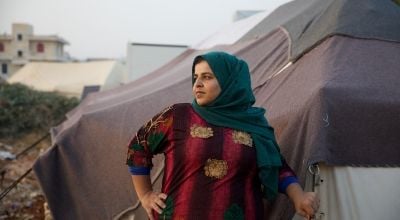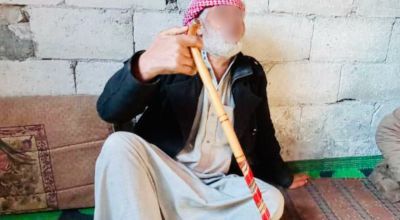
Read our 2024 annual report

Knowledge Hub
Life inside Syria: Meeting basic needs in a country at war
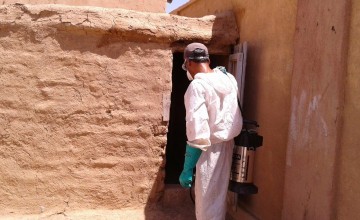
The world sees the horrific images emerging from Aleppo and other flashpoints in Syria’s protracted war. But what of those other parts of the country struggling to function every day in a seemingly endless crisis? How are the millions trapped inside Syria meeting their basic needs in a country at war?
Over the past five years, warring factions have carved up the map of Syria into a complex kaleidoscope of changing colours. Powers shift, control switches and colours change. Amid these cycles of violence, the resilient communities that remain are forced to regroup, rebuild and carry on. And the committed Concern team is on the ground in Syria to stand by them.
Ensuring safe drinking water
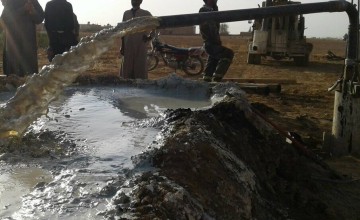
What many might forget as we watch the tragic destruction of Syria is that this was once a well-developed country. The municipal water system, for example, was much like that in Ireland, comprising a main water pumping station and an interconnected network. However, over the past five years, this system has been damaged and neglected, posing a serious public health risk.
With the support of the European Commission's Civil Protection and Humanitarian Aid department (ECHO) and the Office of U.S. Foreign Disaster Assistance (OFDA), the Concern team is working to restore some level of functionality to water systems in Syria. We have been repairing main pumping stations and networks, and supplying households with chlorine tablets to ensure the water they drink is clean. So far, our team has provided 200,000 people in Syria with access to clean drinking water.
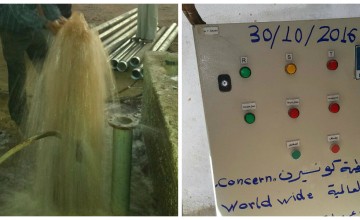
Our work has improved the health of Amena* and her two children, for example. Amena’s son is physically disabled and unable to walk, and she has been left alone to care for him. Their home is not connected to the water network and therefore they had been forced to drink untreated water from a nearby river. This caused frequent bouts of illness, especially diarrhoea, until our team provided Amena with chlorine tablets. We trained her in how to chlorinate her storage tank, and she has since noticed a marked improvement in the family’s health.
Fighting insects and pests
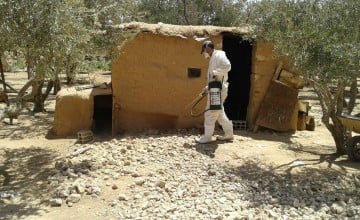
The bombing of buildings and the breakdown of municipal systems across Syria has resulted in a build-up of dust, dirt and rubbish – providing the perfect breeding ground for pests and insects, and the spread of disease. Sand flies – which spread the disease leishmaniasis – in particular have been causing health problems among Syrian communities.
Again with the support of ECHO, our team has employed a special truck and equips individuals to spray problem areas and control pests and insects. We have also provided rubbish containers to reduce the amount of solid waste on the street.
Providing food baskets
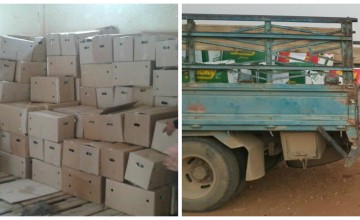
Meeting basic foods needs is an ongoing struggle for many families in Syria. Whole industries have been wiped out, supplies are limited and there is little money in circulation. High profile sieges have shown that hunger is being used as an effective weapon of war in Syria.
With funding from the Office of Food for Peace (FFP), our team is supporting 5,000 families to stave off hunger by delivering monthly food baskets and providing food vouchers to buy basics like bulgur wheat, rice, oil, and sugar.

The power of resilience
In the face of violence, trauma and the grim daily battle to meet basic needs, the Syrian people show incredible spirit and resilience. And as they face into their sixth winter of conflict, the Concern team continues to stand by them.
*Name changed for security purposes.
In depth



